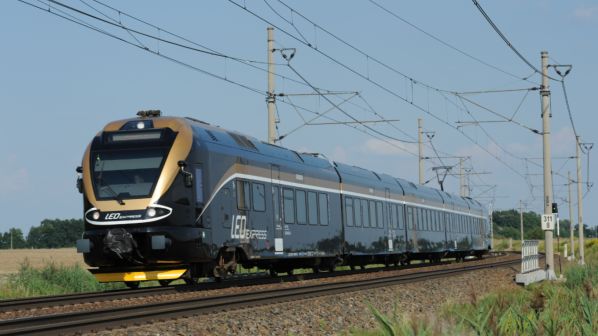“I am forecasting a €540m negative impact from the middle of March until the end of 2020, based on lost revenue due to demand being suppressed,” AllRail’s secretary general, Mr Nick Brooks, told IRJ.
Brooks says passenger traffic has fallen dramatically. “I would now say best case -70%, worst case -95% - or even worse than that in the case of those who have stopped operating, such as charter train operators.”
Service cuts
Westbahn in Austria has cut the frequency of its Vienna - Salzburg service in half and is now operating trains every two hours.
RegioJet in the Czech Republic has cancelled 10 of its 22 daily services between Prague, Ostrava and Kosice, four of its 10 daily Prague - Brno trips, some of its R8 regional services between Bohumin and Brno and all international services.
Czech open-access operator Leo Express is only running five trains per day on the Prague - Ostrava - Bohumin route and has cancelled all other services. Leo Express normally operates nine trains per direction on weekdays on this route with some trains running beyond Bohumin.
Italian open-access high-speed operator NTV-Italo has slashed its services. NTV-Italo normally operates 49 trains per direction daily on the high-speed network but has cut this to just seven trains per direction.
FlixTrain in Germany is currently operating a full service. However, German Rail (DB) tweeted today that is will accept FlixTrain tickets on its InterCity and ICE trains.
Priority for rail
AllRail is calling for train operators to be given priority over short-haul airlines for state support during the coronavirus pandemic. “We welcome yesterday’s statement by European Commission executive vice-president, Ms Margrethe Vestager, for a temporary state aid framework to support the economy,” Brooks said on March 18. “However, we call on it to prioritise applications according to levels of pollution.” He wants the emphasis to be on modes of transport which help to lower the carbon footprint. “Is it sensible to bailout short haul flights where passenger rail is also a viable option?” Brooks asks.
“We must not lose sight of the fact that, while the pandemic will pass, it will have a lasting economic impact on a sector that is absolutely crucial if Europe is to meet its climate change goals in line with the EU Green Deal. It has been new entrant, privately owned passenger rail companies that have really driven modal shift to rail in recent years. Ensuring the survival of all passenger rail companies is essential not only for the preservation of millions of jobs, but also towards the attainment of a climate neutral future and integrity of the single transport market.

